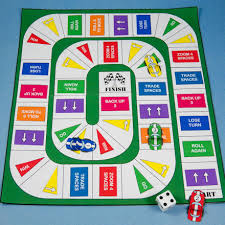“LET’S GET STARTED!!”
In this
project, you’ll have to make a five-minute video about an English speaking country about one of the following continents: America, Asia, Africa or Europe to teach the students from 6th
course of Primary school from San José de
Calasanz sociocultural information. The group which works with Europe
cannot choose UK or Ireland.
After giving
this information, you must think and make up / invent a game for the gymkhana
related to the information you will teach to them.
The deadline
for the video is on 6th June 2019.
These are the
different parts you should follow:
Part 1: BRAINSTORMING:
In small
groups, brainstorm different aspects of your continent customs / traditions /
games or other additional information that you have learned while you were
doing the English project: “Travelling to the English Speaking
Countries”. The grid you completed in class from your classmates’ oral
presentations could help you.
-
Choose the topics which interested
you the most (from the grid you completed in class).
-
Find more info on the web
-
Think about what you want to include
in your video presentation.
Part 2: CREATE THE GAME
Once you have
the information about your country, create a game (your choice). Try to be
creative!! Bear in mind in your game, students should be moving. It can be:
- “Who wants to be millionaire?”
(a multiple choice online game) OR
-
A board game: It should be neat,colorful
and interesting
-
Other games in which the students
will be moving etc.

You should
explain to the Primary school students how to play the game, so you should write
directions you want to give them. Then, you must memorize them for the day
of the gymkhana.
Make sure the
content and the difficulty of the game is appropriate for them.
Decide and create what you want to
give them as a prize when they get a right answer.
Think which materials you would need
and ask them to your teachers. If you need to laminate or write down something
on a poster board / cardboard, please ask your English teachers to check your
grammar and spelling mistakes.
-
IMPORTANT:
Show and explain the game to your English teacher.
Part 3: PRESENTATION:
-
In groups, decide how you are going
to present the information in the video.
-
Divide your presentation in different
parts: Remember that each member of the group should speak the same amount of
time.
-
A tip: Use age-appropriate
props:Decide on which props you would use in the recordinge.g. flags, pictures,
food items, food photos etc. to grab the Primary school students’ attention.
Part 4: REHEARSAL:
-
Before recording, rehearse and time
yourselves.
-
The oral presentation should last
about five minutes.
-
Memorize your part. You mustn’t read
it.
-
A tip to do it properly is to listen
to your classmates’ part and give each other feedback, note any pronunciation
difficulties, vocabulary, grammar.
-
Remember, your presentation should be
natural while you are speaking in front of the camera.
Part 5: RECORDING:
-
Look at the schedule; you’ll have a specific
classroom to record your video.
-
Try to be comfortable in front of the
camera.
-
Show some passion and
enthusiasm when talking!
-
Help each other during the
recording.
Part 6: EDITING THE VIDEO:
-
Edit the video to make it the most
appealing for your primary students as possible. Be creative.
-
You can use tools such as iMovie or
Windows Movie Maker to add music, special effects, captions, titles etc. They
are both free and easy to use.
-
IMPORTANT:
Show the video to your English teacher just in case
you have to change something. Also, send
it to her email address.
Part 7: ArcGIS MAP:
After you
finish creating and designing your game, you must:
-
Put a tack on the country you have
been working in the ArcGIS map.
-
Write down a note in the ArcGIS map
with the following information:
1)
Name of the game
2)
Number of players
3)
Materials needed in the game
4)
The instructions of the game – how
the game is played.
5)
Take a picture of your game and
upload it in the ArcGIS map.
Part 8: ORGANIZATION OF THE GAME (FOR
THE GYMKHANA DAY):
- Divide the game in different parts and
decide: who is going to explain the game in the gymkhana, who is going to
organize the children, who is going to tell them if their answer is correct,
etc.
- Remember that each member of the group should speak the same amount of time.
- Wear or dress up with something related
to your country.
Part 9: GROUP CLASS DECORATION:
-
Use your creativity to decorate the
stall where your video is going to be shown. The decoration should be about the
country or continent you are working in.
-
A tip: You can bring the props you
have used to record the video to the closing event (Friday, 7th of
June), the day when the students from San Jose de Calasanz are going to come.
EQUIPMENT:
The equipment you will need is:
-
video equipment
-
Material to design your game: scissors,
cardboards, coloredpaper,colored pencils, dices, markers etc.
-
Material to decorate your stall and
create the prizes.





